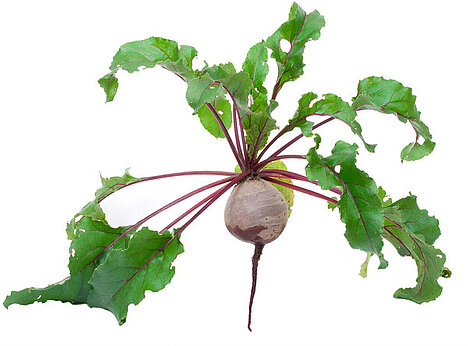Beet molasses pulp

What is beet molasses pulp?
Beet molasses pulp is dried and pressed sugar beet pulp that has been enriched with sugar beet molasses. Molasses is a viscous syrup that is produced during sugar production and contains many minerals and vitamins. The molasses makes the schnitzel tastier, richer in energy and more durable.
Beet molasses pulp has a high carbohydrate content, especially pectin, hemicellulose and cellulose. These are easily digestible for ruminants, but only to a limited extent for dogs. Beet molasses pulp should therefore only be fed in small quantities and not as the main component of the diet.
What are the benefits of beet molasses pulp for dogs?
Beet molasses pulp can have several benefits for your dog's health and well-being if you dose and combine it correctly. Here are some of them:
- They can promote intestinal flora as they provide fiber, which acts as a prebiotic and stimulates the growth of beneficial bacteria in the gut.
- They can regulate digestion as they bind water and soften the stool. This can help with constipation or dry food.
- They can strengthen the chewing muscles, as they have a firm consistency and your dog has to chew on them. This can also help to clean teeth.
- They can increase the feeling of satiety as they have a lot of volume and fill the stomach. This can help control weight in overweight dogs or those with a big appetite.
- They can strengthen the immune system as they contain many antioxidants, trace elements and vitamins that support the immune system.
What are the disadvantages of beet molasses pulp for dogs?
Beet molasses shreds are not suitable for every dog and can also have some disadvantages or risks if you feed them incorrectly or overdose. Here are some of them:
- They can cause bloating as they contain hard-to-digest carbohydrates that are fermented by bacteria in the gut. This can lead to gas and discomfort.
- They can lead to diarrhea as they bind a lot of water and dilute the stool. This can cause problems for sensitive dogs or those with diarrhea.
- They can lead to obesity as they contain a lot of calories and increase blood sugar levels. This can lead to obesity or insulin resistance in less active dogs or those with diabetes.
- They can lead to allergies as they contain proteins that can trigger an immune reaction. This can lead to skin problems or itching in allergic dogs or those with food intolerances.
How do you feed beet molasses shreds to dogs?
If you want to feed your dog beet molasses pulp, there are a few points you should bear in mind in order to reap the benefits and avoid the disadvantages. Here are some tips:
- Start with a small amount and increase it slowly to see how your dog responds. A rule of thumb is to replace no more than 10 percent of the daily food ration with beet molasses pulp.
- Mix the beet molasses pulp with other food, especially high-quality protein, to improve digestibility and stabilize blood sugar levels. You can mix it with meat, eggs or quark, for example.
- Soak the beet molasses shreds in water before feeding to swell them and reduce the risk of choking or swallowing. This also makes them softer and easier to digest.
- Do not feed the beet molasses shreds to dogs with known allergies, diabetes, diarrhea or other health problems that could be aggravated by feeding them.
Beet molasses pulp is an interesting food for dogs that can have some health benefits, but also some disadvantages or risks. They should therefore only be fed in small quantities and in combination with other food. If you want to feed your dog beet molasses pulp, you should approach it slowly and pay attention to your dog's reaction.
If you notice any signs of hypersensitivity or poisoning in your dog, you should see your vet immediately. We are not a substitute for a vet, but we try to be as accurate as possible. Every dog reacts differently and we recommend you get a second opinion or consult your vet if in doubt.
Stay healthy and take good care of your four-legged friend!😊